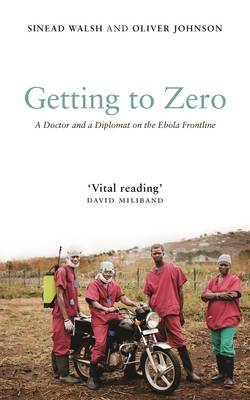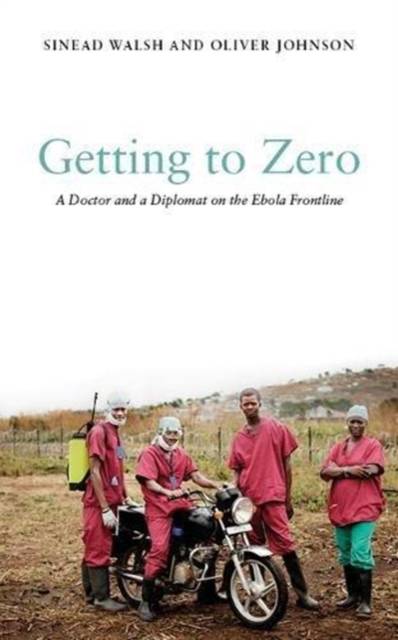
- Afhalen na 1 uur in een winkel met voorraad
- Gratis thuislevering in België vanaf € 30
- Ruim aanbod met 7 miljoen producten
- Afhalen na 1 uur in een winkel met voorraad
- Gratis thuislevering in België vanaf € 30
- Ruim aanbod met 7 miljoen producten
Zoeken
Getting to Zero
A Doctor and a Diplomat on the Ebola Frontline
Sinead Walsh, Oliver Johnson
Hardcover | Engels
€ 194,45
+ 388 punten
Uitvoering
Omschrijving
In 2014, a 28-year old British doctor found himself co-running the Ebola isolation unit in Sierra Leone's main hospital after the doctor in charge had been killed by the virus. Completely overwhelmed and wrapped in stifling protective suits, he and his team took it in turns to provide care to patients while removing dead bodies from the ward. Against all odds he battled to keep the hospital open, as the queue of sick and dying patients grew every day.
Only a few miles down the road the Irish Ambassador and Head of Irish Aid worked relentlessly to rapidly scale up the international response. At a time when entire districts had been quarantined, she travelled around the country, and met with UN agencies, the President and senior ministers so as to be better placed in alerting the world to the catastrophe unfolding in front of her. In this blow-by-blow account, Walsh and Johnson expose the often shocking shortcomings of the humanitarian response to the outbreak, both locally and internationally, and call our attention to the immense courage of those who put their lives on the line every day to contain the disease. Theirs is the definitive account of the fight against an epidemic that shook the world.Specificaties
Betrokkenen
- Auteur(s):
- Uitgeverij:
Inhoud
- Aantal bladzijden:
- 442
- Taal:
- Engels
Eigenschappen
- Productcode (EAN):
- 9781786992475
- Verschijningsdatum:
- 3/08/2018
- Uitvoering:
- Hardcover
- Formaat:
- Genaaid
- Afmetingen:
- 137 mm x 218 mm
- Gewicht:
- 639 g

Alleen bij Standaard Boekhandel
+ 388 punten op je klantenkaart van Standaard Boekhandel
Beoordelingen
We publiceren alleen reviews die voldoen aan de voorwaarden voor reviews. Bekijk onze voorwaarden voor reviews.







